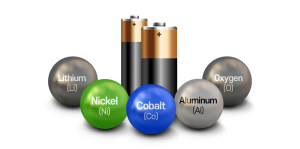Why boaters choose the 36V lithium marine battery?
Marine batteries have two basic purposes: to start gas or diesel engines, and/or to power the ships’ electric motors or other electronic devices. In either case, you want the battery to last for many years and be reliable every time you leave the docking station.
When you are researching the best marine battery for your boat, you should look for certain qualities in power solutions. One of the most important qualities is weight.
Heavy-duty lead-acid batteries will slow down your boating speed and performance. When you own a small boat, a heavy lithium polymer battery will also reduce your fuel efficiency. Instead, you need a lightweight c optimized for high performance.

Why boaters choose lithium for their marine batteries?
Therefore more and more boaters are turning to lithium marine batteries for many reasons! The weight of a rechargeable deep-cycle lithium iron phosphate (LiFePO4) battery is one-third of the lead-acid substitute. In addition to providing higher capacity and longer charging intervals, lithium batteries also have many water advantages due to their lighter weight. Here are three ways to choose lithium technology to power your ship, which can improve your ship’s performance:
Reduce size and weight
All boats have weight restrictions. It is important to reduce your weight on the boat. This is no secret. On average, the weight of a lithium polymer battery is about half that of a lead-acid battery of the same capacity.
For example, the weight of a Maxworld 100 Ah lithium battery is approximately 13 KGS. The average weight of a 100 Ah lead-acid battery is between 27 and 30 KGS, depending on the battery type. Sometimes, lithium car batteries can also play an important role.
Increase the number of charge and discharge cycles
Deep-cycle lead-acid marine batteries usually last 500-1,000 charge and discharge cycles. Or, the life cycle of a 36v lithium marine battery is usually between 3,000-5,000 cycles.
In addition, the service life of lead-acid batteries depends on how well you maintain the batteries. Lithium-ion batteries require almost no maintenance to optimize their performance and service life. Sometimes, the lithium battery price is also a very important factor.
Increase power storage
Depleting lead-acid batteries to less than 50% of their capacity will cause damage and shorten the battery’s life. In contrast, most lithium battery manufacturers rate their batteries to allow 80% depth of discharge. The batteries we manufacture can discharge 100% without causing damage.
Increased power storage is one of the greatest benefits of lithium batteries. Since you usually get almost twice the capacity, you may only need half the battery. Half the number of batteries, when the weight of each battery is half of the lead-acid battery, the weight is reduced by almost four times!
Cheaper long-term
The upfront cost of buying 36v lithium marine batteries is significantly higher than buying lead-acid batteries. However, the service life of lithium batteries is usually at least five times that of lead-acid batteries.
In the long run, their longer life and higher efficiency make lithium-ion marine batteries cheaper. Also, keep in mind that you may only need half the number of lithium batteries as lead-acid batteries.
Is it easy to switch to marine lithium batteries?
Many lithium batteries are directly replaceable, which means they are designed to fit your battery pack just like a typical lead-acid battery. However, it is not always plug-and-play. You may need other components to complete the installation.
Depending on your usage and application, you may need to upgrade the inverter and battery charger to maximize performance. In addition, the lithium battery does not have any warning signs that it is about to run out, so you may also need to add a battery monitor.
Most of these changes are relatively simple; however, errors in the electrical system can be dangerous. If you are not confident about your ability to switch to marine lithium batteries, please contact a professional.
How long can lithium-ion marine batteries last?
Lithium marine batteries usually last 3,000-5,000 charge cycles. This usually means that lithium batteries can be used for ten years or more.
In fact, at Maxworld, we provide a five-year warranty for our lithium batteries. In contrast, most lead-acid manufacturers offer a warranty period of one to three years.
Are lithium batteries safe on board?
Yes, lithium batteries are safe for marine and marine applications. Lithium batteries are sealed, which means that moisture or even a little bit of water will not cause harm.
In addition, most lithium batteries have an internal battery management system (BMS). The BMS will detect unsafe conditions and shut down the battery to prevent damage or thermal runaway.

How expensive are marine lithium batteries?
For a battery with a capacity of 100 Ah, the cost of a lithium marine battery is usually around US$250/pcs. The initial cost is significantly higher than the available lead-acid similar products, but the overall long-term cost is lower.
Is it worth upgrading marine batteries to lithium batteries?
We have said this several times: Lithium-ion batteries are much more expensive than lead-acid batteries. However, for increased costs, you can enjoy the benefits of significant weight reduction, increased efficiency, increased safety, and longer service life.
When you take all the factors into consideration, in the long run, not only is a 36v lithium marine battery actually cheaper, it is definitely worth the investment.

Conclusion
When you want to improve overall performance, switching to a 36v lithium marine battery is a time- and cost-intensive alternative to power your boats. It’s like getting a new and improved ship by changing your power supply.
Consider replacing heavy-duty, high-maintenance lead-acid batteries with lighter LiFePO4 batteries.












